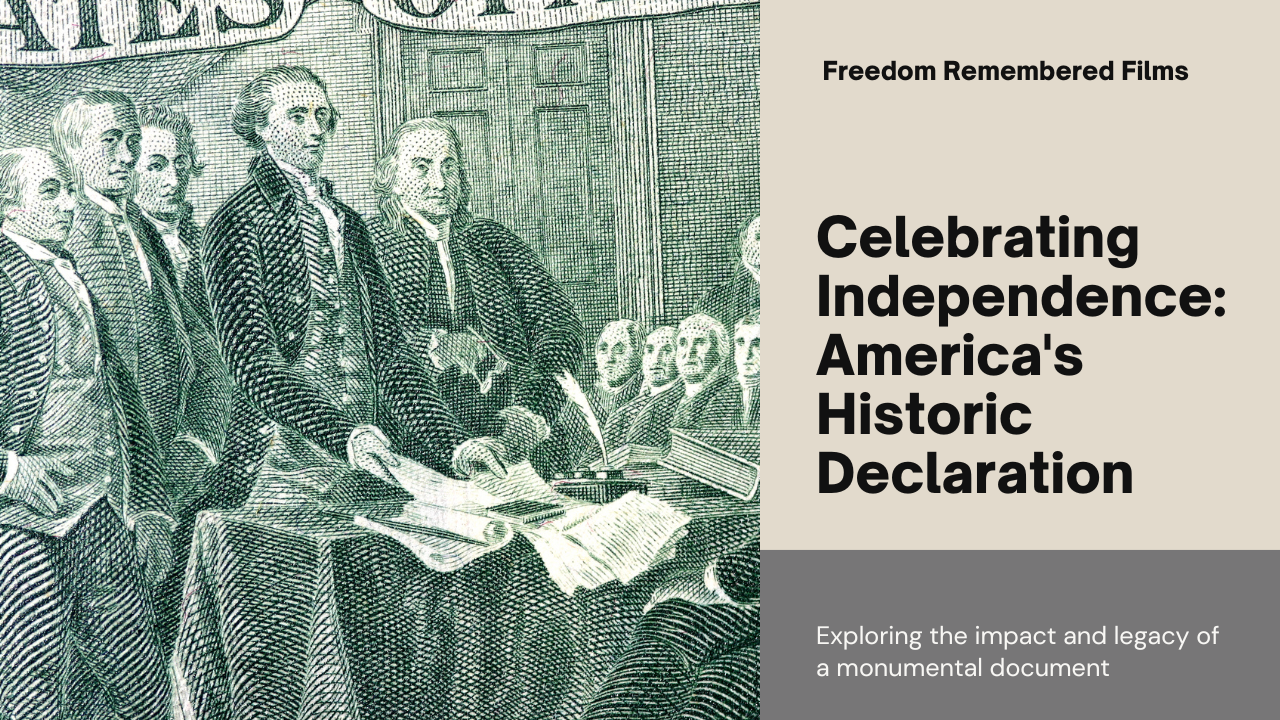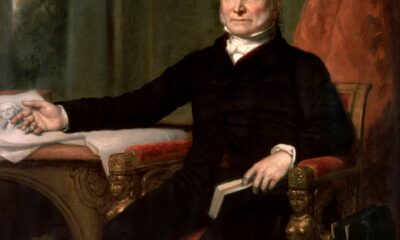Constitution
What Is Independence Day (4th Of July) All About?

I am well aware of the Toil and Blood and Treasure, that it will cost Us to maintain this Declaration, and support and defend these States. — Yet through all the Gloom I can see the Rays of ravishing Light and Glory. I can see that the End is more than worth all the Means. And that Posterity will triumph in that Days Transaction, even although We should rue it, which I trust in God We shall not. President John Adams, letter to Abigail Adams, July 3, 1776
Grievances leading to a struggle for independence
Many people today have the misconception that we separated from Great Britain because of taxation without representation. And yet, this was number 17 out of the 27 grievances given.
Greater grievances were cited before taxation without representation.
- Abuse of power
- Abuse of representative powers
- Abuse of military powers 7 times more often
- Abuse of judicial powers 4 times more often
- Generally stirring up domestic insurrection 2 times more often
- Military above civilian power
Again, taxation without representation was 17-27.
Outside of the fact that the Lord was sought out and mentioned 4 times in the Declaration of Independence, this should tell us what the separation was truly about (Exodus 32:26).
As a matter of fact, President John Quincy Adams said,
Why is it that, next to the birthday of the Savior of the world, your most joyous and most venerated festival returns on this day (the 4th of July)? Is it not that, in the chain of human events, the birthday of the nation is indissolubly linked with the birthday of the Savior?
On July 4, 1776, a group of Americans approved a document declaring the United States of America free from English rule. This document was the Declaration of Independence, and today we celebrate the 242nd birthday of this courageous action!
The Declaration of Independence is the nation’s birth certificate. Thomas Jefferson, the primary author of the Declaration, outlined its purpose:
When forced, therefore, to resort to arms for redress, an appeal to the tribunal of the world was deemed proper for our justification. This was the object of the Declaration of Independence. Not to find out new principles, or new arguments, never before thought of, not merely to say things which had never been said before; but to place before mankind the common sense of the subject, in terms so plain and firm as to command their assent, and to justify ourselves in the independent stand we are compelled to take. Neither aiming at originality of principle or sentiment, nor yet copied from any particular and previous writing, it was intended to be an expression of the American mind. Letter from Thomas Jefferson to Henry Lee, 1825
John Adams, in informing his wife of the events preceding the passage of the Declaration, stated:
I am well aware of the toil and blood and treasure that it will cost us to maintain this Declaration and support and defend these states. Yet through all the gloom, I can see the rays of ravishing light and glory–I can see that the end is more than worth all the means and that posterity will triumph in that day’s transaction.
Remembering it for generations
Across the generations, many others have heralded the importance of the Declaration. For example, Civil War hero Ulysses S. Grant saw it as one of the many evidences of God’s guidance:
In all these marked stages of national progress, from the Declaration of Independence to the recent amendments of the Constitution, it is impossible not to perceive a providential series and succession of events.
President John F. Kennedy’s words about the Declaration are as stirring today as they were when they were originally delivered over 50 years ago:
[The] Declaration unleashed not merely a revolution against the British but a revolution in human affairs. Its authors were highly conscious of its worldwide implications. And George Washington declared that liberty and self-government everywhere were, in his words, “finally staked on the experiment entrusted to the hands of the American people.”
This prophecy has been borne out….This doctrine of national independence has shaken the globe, and it remains the most powerful force anywhere in the world today.
As we celebrate the birthday of America today, don’t forget the many sacrifices made long ago by the signers of the Declaration on our behalf! Happy Independence Day!
[O]n this special day, the birthday of our nation, in the midst of all the joyous celebrations let us take a moment to remember the debt of thanks we owe to those who came before us, to the same God who guides us all, and to the spirit of faith and patriotism which still makes America “the land of the free and the home of the brave.” Ronald Reagan
Bradlee Dean is an ordained Christian preacher, Radio show host for the #1 show on Genesis Communication Network from 2-3 p.m. central standard (The Sons of Liberty), a National Tea Party favorite. He also speaks on high school and college campuses nationwide. Bradlee is also an author, a husband to one, daddy to four boys. You have probably seen Bradlee through such outlets as The New York Times, Fox News, MSNBC, CNN, The Weekly Standard etc.
-

 Accountability2 days ago
Accountability2 days agoWaste of the Day: Principal Bought Lobster with School Funds
-

 Constitution2 days ago
Constitution2 days agoTrump, Canada, and the Constitutional Problem Beneath the Bridge
-

 Executive23 hours ago
Executive23 hours agoHow Relaxed COVID-Era Rules Fueled Minnesota’s Biggest Scam
-

 Civilization22 hours ago
Civilization22 hours agoThe End of Purple States and Competitive Districts
-

 Civilization4 days ago
Civilization4 days agoThe devil is in the details
-

 Executive4 days ago
Executive4 days agoTwo New Books Bash Covid Failures
-

 Civilization4 days ago
Civilization4 days agoThe Conundrum of President Donald J. Trump
-

 Executive4 days ago
Executive4 days agoThe Israeli Lesson Democrats Ignore at Their Peril














